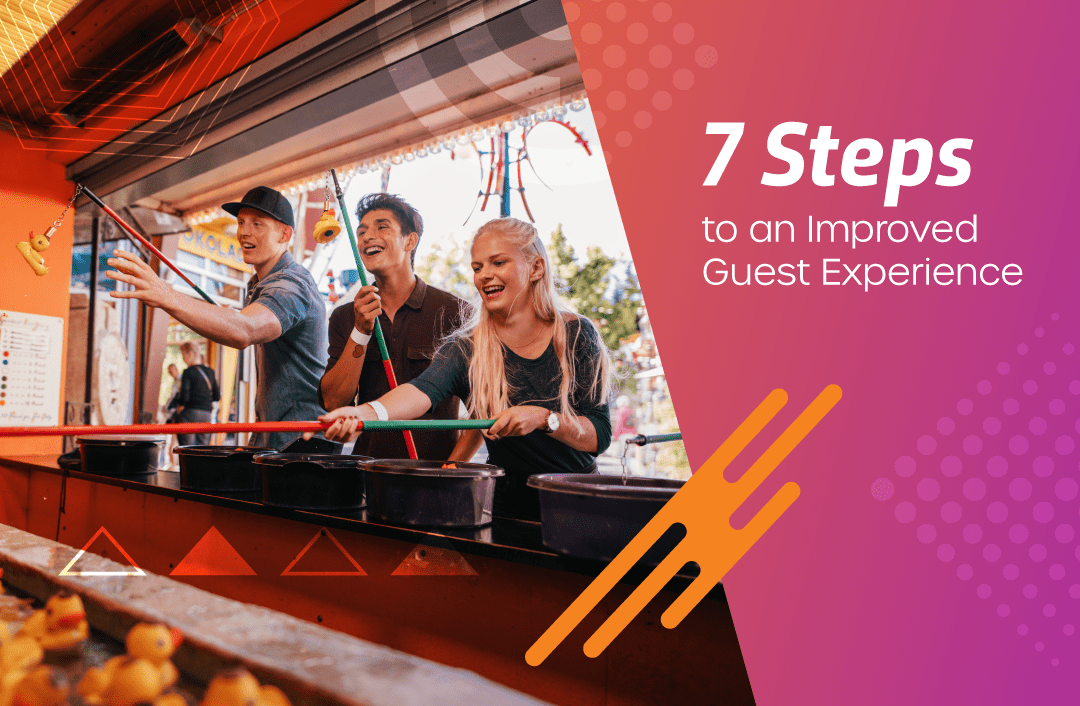Boost your inbound bookings immediately with a few easy-to-implement tips.
Your party hosts and guest service staff have become true ambassadors of your facility and people love the idea of hosting an important birthday party (or event) with you. Your email marketing, social media and in-store marketing campaigns are working, and people are calling your business trying to book. The business is yours if you want it—but wait—are you losing the sale at the last moment by falling prey to these sneaky sales blunders? Read on for 7 common pitfalls and how to avoid them.
No. 1: They don’t answer the phone.
You read that right. The phone going unanswered is at the top of the list for the most common inbound sales pitfalls. In fact, in the last three months alone, 57% of the entertainment facilities that I have called to either book an event personally or when conducting presentation research, resulted in at least one failed attempt to reach the site. And if busy parents and event planners are anything like me, their ‘time to buy’ is the moment that they call your business, so it’s critical that staff is available to take calls every day.
It is also a good idea to have sales hours be as consistent as possible throughout the week to take these calls. It may not make sense to have a fully staffed facility at noon on a Tuesday, however, it is likely to be a prime time for parents calling on their lunch hour to book a party. If necessary, consider re-routing your phones to a manager’s cell phone to maintain coverage offsite.
While being present to take the call is ideal, you will probably miss a call occasionally. How do you handle those calls now? Consider implementing a policy like Shannon O’Connor’s Rockin’ Jump Chicago Team. All voicemails must be returned within one hour on weekdays, and within two hours on weekends. In fact, they even make it a practice to call back hang-ups from the caller ID. They log every voicemail with both the date & time the prospective guest called and the date & time the message was returned (and also by whom). With this level of focus, it’s really no surprise that her guest satisfaction scores are at an all-time high. Shannon says that guests “are thrilled to get an immediate call back so they can book their party right away and get the invitations out!”
No. 2: They don’t invest in their caller.
You know your product inside and out. And that can be both a blessing and a curse. For example, when you answer the phone and hear the word “birthday”, do you immediately wrestle the conversation away from the caller so you can launch into the details of your packages without giving them a moment to think, let alone engage with you? If so, you’re missing a critical component of any sales process, and that’s building rapport and investing in your caller.
Invest in your caller, and in the moment by taking time to focus yourself so you’re ready to go all-in during the conversation. Asking three quick questions on a birthday party call can give you everything you need to start building a relationship between your facility and your prospect. Try:
Caller: Can you tell me about your birthday party packages?
Team Member: I’d love to! Whose birthday is it?
Caller: My daughter’s.
Team Member: Great, what’s her name?
Caller: Chloe.
Team Member: And how old is Chloe turning?
Note that asking “whose birthday is it?” will often prompt the parent to give you both the gender and the child’s name (without the uncomfortable “is that a boy or girl?” conversation), but just in case be sure to ask the child’s name and use it throughout the call to make it a personalized experience. Once you know how old Chloe will be turning, you’ll be able to eliminate non-age appropriate packages when you explain your options. Plus you’ll be able to invest in the caller more by telling them you have a great program, or great packages, for nine-year-olds, building trust in the parent’s mind and confirming they’ve made the right decision by calling you.
No. 3: They don’t take the time to discover.
Depending on the type of packages you offer, your potential guest may not need to hear about all of them. If you package birthdays based on the number of guests, for example, a parent considering a party with just a few friends won’t need to know about your 20-person package. Be sure to discover the number of expected attendees and the number of adults as well. Then tailor your package explanation and offer relevant upsells, for example, add-on party platters and drinks for those non-participating adults.
No. 4: They don’t actively listen.
You’ve sold a hundred birthday parties and youth events, so what’s one more, right? Wrong! We can get so caught up in the normal flow of a call that we find ourselves hearing what we expect to hear. This can cause you to miss important nuggets from your prospect that give you insights into possible upsells or buying motivations. Remember that this call is not the same as the five before it. Give every call the same amount of focus as the first one.
No. 5: They rush the education phase of the call.
If you notice that your caller repeats what you’ve said, or asks a question that you just answered, chances are you’ve explained your offering much too fast and overwhelmed them. I know you’ve said the words, “plates, cups, napkins and table decorations, plus a free t-shirt for Child’s Name” a thousand times but try not to rush it. It’s likely the first time the caller is hearing this information from you and they need time to take it in. Try to match your pace of speech to your caller’s to stay on the same track.
No. 6: They make assumptions.
We all have biases that can impact how we sell and this is commonly seen in pricing. You should know that your packages aren’t going to be worth a penny more than the value that you see in them. If you have priced your attractions, food offerings and packages in a way that delivers a unique selling proposition, e.g. a world-class experience, an elite event, or even a down-to-earth party at a great value, be confident in your pricing. We make assumptions about what someone else is willing to pay based on our own buying styles and behaviors, but remember, you’re usually building packages and selling to a much wider audience than people who think and behave exactly like you do. Don’t assume you know what someone wants, instead, actively listen to what’s important to them, and educate them on the package(s) that sound most like what the seek.
No. 7: They don’t ask for the booking.
Believe it or not, this could very well be happening in your facility. And not because team members don’t want to do their job. They think they’re “giving out information” and that they “don’t want to be pushy” but the bottom line is that your caller, unless they work for your competitor, is not secret shopping you. They aren’t window shopping a birthday party. They are going to stop the search the moment they find the venue that’s going to give them the event they’re looking for and the call experience they’re most comfortable with. It’s up to you to be that venue. So don’t worry, you’re selling fun and making memories, no one is going to throw rocks at you for saying, “great, I would love to book Chloe’s party today! All I need now is a $100 deposit, and you won’t have to pay the balance until the end of her party. How does that sound?” Your guest expects you to ask, and they’ll trust they’re making the right decision when you seem in control of the conversation and confident about the experience your facility offers.
Take a moment to secret shop your own facility or take stock and determine if you or your team is falling victim to these pitfalls and start booking more events today.
Have other key ingredients for winning sales conversations? Share them with us in the comments or on Twitter!
Search Resources
Subscribe to Email Updates
Featured Resources
News //
CenterEdge Chosen as Exclusive Software Partner for Launch Entertainment Growth Plan

Blogs //
How to Build Better Relationships With Your Guests

Blogs //
7 Steps to an Improved Guest Experience

Blogs //
5 Features of CenterEdge’s New Integration with Semnox

Posts by Topic
- Advantage Payments (7)
- Brand Management (19)
- Business Growth (81)
- Capacity Management (2)
- CenterEdge News (30)
- Client Interviews (9)
- Credit Card Processing (3)
- Data & Reporting (12)
- Digital Signage (1)
- Event Management (20)
- Facility Management (10)
- Food & Beverage (8)
- Guest Experience (34)
- Guest Management (20)
- Holiday Season & Promotions (5)
- Industry Events (12)
- Inventory Management (1)
- Loyalty Programs (8)
- Marketing Tips (24)
- Operations (1)
- Point of Sale (10)
- Product Launch (11)
- Productivity (5)
- Profitability (35)
- Redemption Management (1)
- Sales (35)
- Season Passes (1)
- Team Training (60)
- Waivers (2)

Leave a Comment